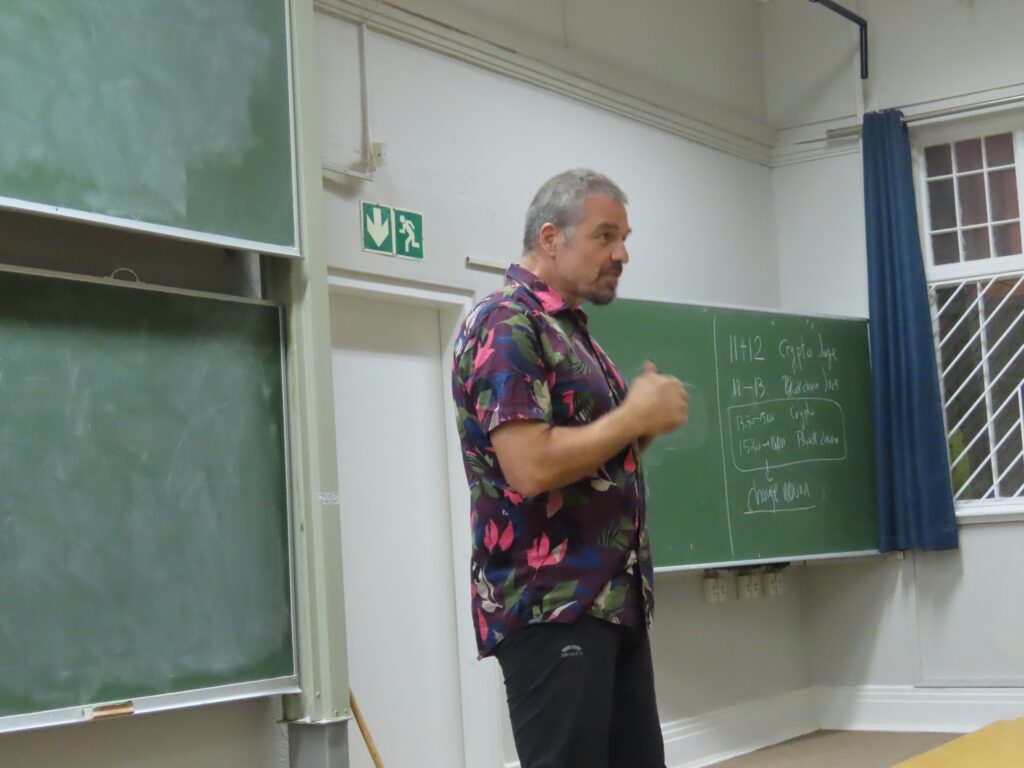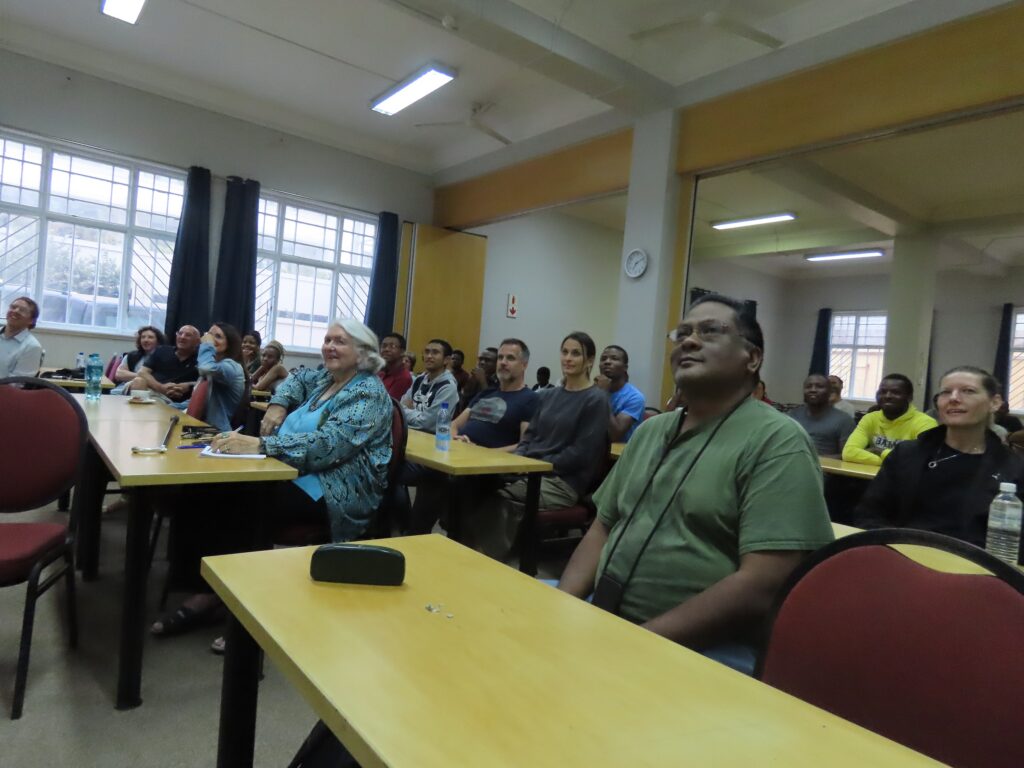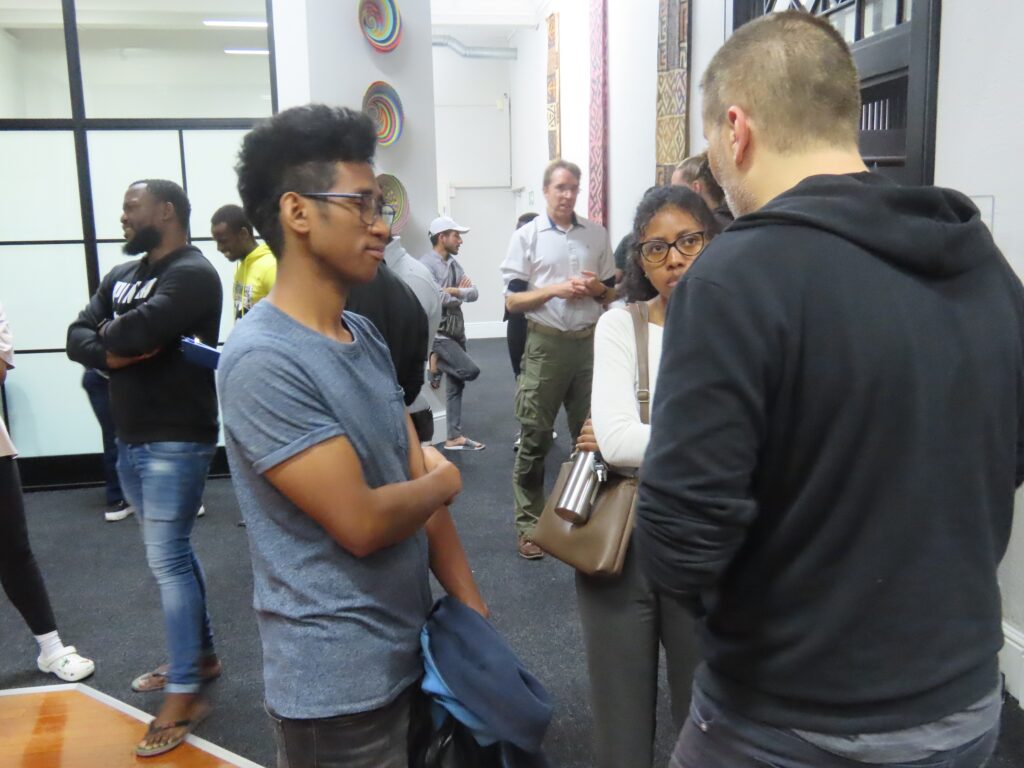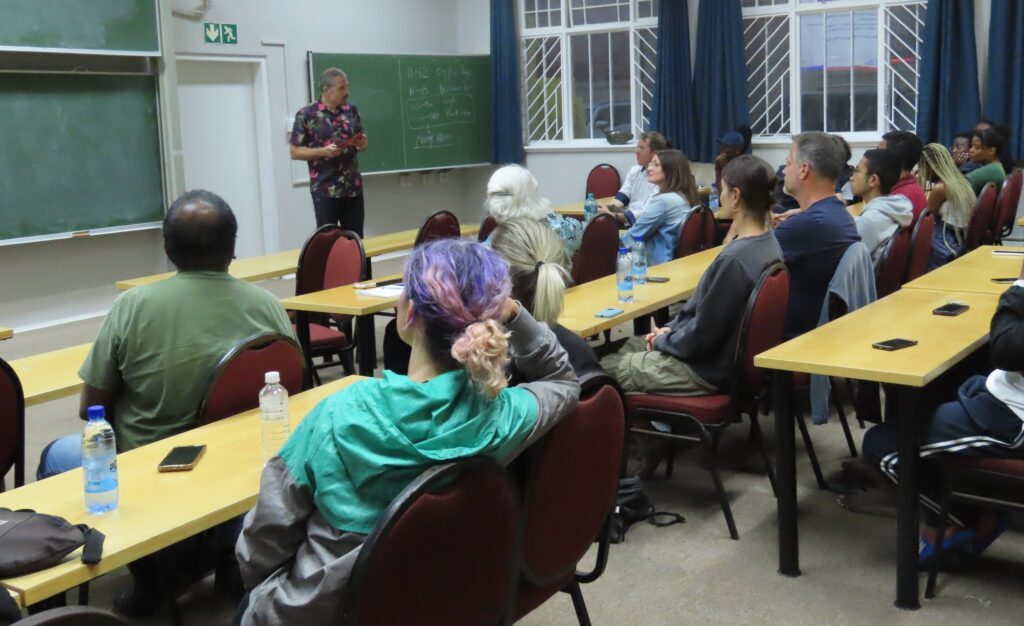The process of voting is central to representative democracies. It is a conventional and universal way votes are cast and counted: People get together, cast ballots, votes are counted, and the majority determines the winner. But how could it be possibly different? Mathematicians have investigated this question under various research aspects. Their analysis helps to understand our rules and regulations from a scientific perspective and make sure that core democratic principles are reflected in the methods that we use in elections.
On 23 November 2023, AIMS South Africa hosted a public lecture by Dr Michael Winckler, an Administrator Director at the Interdisciplinary Center for Scientific Computing (IWR), Heidelberg University, Germany. The title of the lecture was “One (wo)man – one vote: The mathematics of voting and elections.” This public lecture formed part of the heiAIMS: Heidelberg – Cape Town Network for Applied Mathematics and Scientific Computing project. The audience included school teachers, professionals from the industry and business sector, Muizenberg Improvement District (MID), government, AIMS students, researchers and visitors. The event started with a networking session to provide an opportunity for AIMS students and researchers to interact with the members of the public. In his talk, Dr Winckler presented five different ways to determine a “winner” in an election process. Each method has its strengths and weaknesses.



From Plurality Vote to Borda-Count methods and from Condorcet-elections via Instant-Runoff procedures to finally Two-Round systems, the lecture introduced the audience to a wide variety of election procedures, giving for all of them references of current use of these competing election methods in democratic systems around the world.
The audience found the lecture very informative, and they learned a different way of auditing and casting votes.
“With the last municipal election, we noticed a great decline in the number of votes, and this lecture has taught me a different way of handling the incident and improving our overall outcome in the near future, especially since elections will be coming up soon…”, said a member of the public.
“I imagined it would be very technical but was pleasantly surprised when it was put into layman’s terms and I understood everything. I really learned a lot about Voting Systems and this will help me in the future with my involvement in various associations…”, another public participant declared.
“I expected the event to revolve around voting and the speaker did his best to take us through different voting systems that can be used to determine who’s the winner. It helped me to view things from different perspectives, which in turn leads to obtaining a variety of outputs from which a good discussion arises in order to determine which output is desirable,” said a student participant.
The lecture was organised by AIMS House of Science and chaired by Dr Ulrich Paquet, AIMS South Africa Executive Director. Special thanks to the House of Science intern (Noluthando Sithole) and student volunteers (Aness Chelfat, Clinton Garayi, Ester Kitengu, Carlin Foka, Moses Kargbo, Reagan Okumu, Vincent Kongo, Thifundedzwi Nemukula, Rofhiwa Muthikitha and Marry Thekhwe) that assisted with the logistics of the event. We appreciate Ms Truida Prekel, an Innovation Catalyst at SynNovation Solutions, for assisting with marketing the lecture within the Muizenberg community forums.
About AIMS Public Lecture Series
The AIMS Public Lecture Series aims to provide an opportunity for scientists to share discoveries and engage with the broader community in Muizenberg and beyond on pressing scientific, technological, innovation and environmental issues – and share practical, useful applications of mathematics in everyday life.
Upcoming public lecture: The Illusion of Control. Wisdom and the Regulation of AI
📅Date: February 13, 2023
⏰ Time: 14:00 PM
Register now (limited spaces available): https://forms.gle/gUk1QM7SUZhdrMLu8

